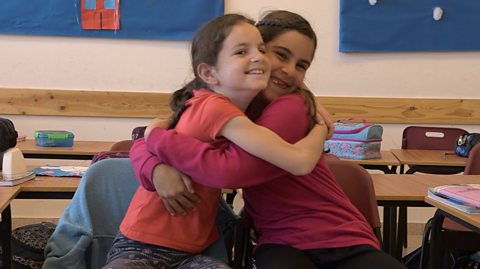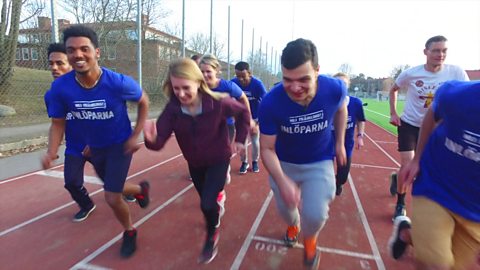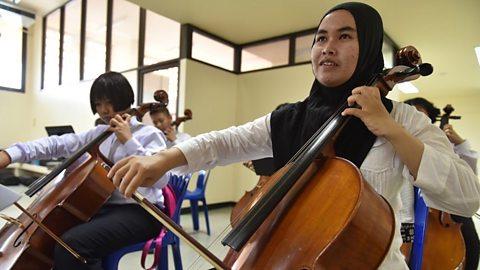This video focuses on co-operation between asylum seekers and the UK population.
Over the past decade, between 20,000 and 40,000 people have sought asylum in the UK each year.
They arrive from many countries, notably Iran, Syria, Sudan, Eritrea, Pakistan, Afghanistan and Nigeria.
Not all of them are allowed to stay. In 2017, the Home Office ruled on the cases of 21,290 people and granted some form of protection to about 6,800.
However, the increasing number of people from different culture arriving in the UK in recent decades has created tension with local populations in some areas.
Over the same period, immigration policy has increasingly been cited as one of voters’ main priorities in elections.
In this video, we are introduced to Yorkshire farmer Rodney Beresford who has welcomed asylum seekers from a variety of nations onto his farm, as part of a Yorkshire Dales Millennium Trust programme.
The men – including one who farmed camels in Kuwait - say the work makes them happy and reminds them of the homelands they have fled.
Mr Beresford says they are a great help and that he has learned from his guests. “It’s one of the best things I’ve done over the years,” he declares.
This clip is part of the В鶹№ЩНшКЧТіИлїЪ's 'Crossing Divides' project.
Teacher Notes
If you have an asylum seeker, refugee or expat children in your class, you could begin by asking them to describe how they felt on arrival in the UK.
What seemed strange, frightening, exciting or interesting? Did they find their new environment welcoming, or was it initially unfriendly?
Then ask pupils about their experience of newcomers – it could be someone from another country, or even a new arrival from another school. What was their initial reaction? Did their attitude change and, if so, why? Did they learn anything new?
You could ask them to imagine being somewhere different, without their friends – or even family – and where none of their hobbies, their technology, their clubs or groups were available to them. How would they try to fit in?
Ask them to think about activities they like; things that make them think of home, of friends, of good times.
Have they ever shared such an activity with someone they didn’t know?And did that help them change their attitude to that person? Did they make a friend?
Curriculum Notes
This clip is relevant for teaching PSHE at GCSE,in particular for Identity and Diversity in England, Wales and Northern Ireland and for Modern Studies at National 4/5 in Scotland.
More from Crossing Divides
Friendships forged across racial chasm. video
Casey and Waj have forged a rare and deep friendship that cuts across Rotherham's ethnic divides.

The gym bringing young and elderly people together. video
The Good Gym aims to end the loneliness many elderly people face, whilst keeping participants healthy.

The school bringing a divided community together. video
How one Israeli school is bridging the gap between Jews and Arabs.

How Sweden is integrating migrants and locals. video
The Hej Framling! (Hey Stranger!) group in Sweden integrates migrants and locals by getting them running together.

Can music bridge Thailand's sectarian divide? video
A youth orchestra made up of children from both sides of the conflict look to heal Thailand's sectarian divide.

Мэ